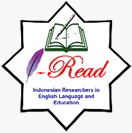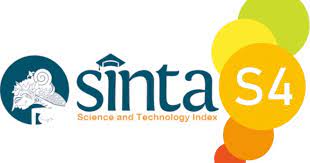Improving the Students’ Writing Skills by Using Track Changes in Paired Writing Correction
DOI:
https://doi.org/10.22219/englie.v1i1.13131Abstract
Researchers made observations during the writing class. There were several writing problems faced by students, including: spelling errors in writing a few words, difficulty in compiling ideas, grammatical errors, incorrect punctuation, and inaccurate diction used. The researcher then found a solution to that problem by using the track changes feature in the pair correction activity. Track changes was useful for correcting students' writing in the editing phase not only making corrections, students also worked together in groups in pairs to produce better writing. The study used a classroom action research that aimed to describe the implementation of the use of track changes in pair correction activities and to find out whether the strategy could improve students' writing skills. The subjects of this study were students in class XI IPA 1 with a total of 32 students. The procedures in this study included planning, action, observation, and reflection. Researchers collected data through pre-test, post-test, questionnaire, and interview. The researcher used two cycles in this research. The results of the pre-test action showed that the average grade of the class was 67, after implementing the strategy, the average class in the first post test was 79 and in the second post-test it was 81. Based on these results, the use of track changes in writing correction in pairs could improve students' writing skills. The data were also supported by the results of questionnaires and interviews obtained that track changes helped students in learning to write.
Downloads
References
Aksit, Zeynep. (2009) Using Track Changes in Microsoft Word to Correct Student Writing. Proceedings of the 10th METU ELT
Creswell, J.H. (2011) Educational Research: Planning, Conducting, and Evaluating Quantitative and Qualitative Research, Fourth Edition. New York: Pearson EducationInc.
Harmer, J. (2004) How to Teach Writing. England: Pearson Education
Hyland,K. (2004) Second Language Writing. New York: Cambridge University Press
Kemmis, S., & Taggart, R. Mc. (1992). The Action Research Planner. Victoria: Deakin University.
Syakirman, Ahmad. (2016) Using Peer Editing to Improve Students’ Writing Skill.
Bengkulu: Literary Critism Journal vol.3 no 2
Birnholtz, Jeremy. Ibara, Steven. (2012) Track Changes in Collaborative Writing: Edits,
Visibility and Group Maintanance. Seattle: Session Four Life Stages
Dalman. (2015) Keterampilan Menulis.Jakarta: Raja Grafindo Persada
Nation, I.S.P. (2009) Teaching ESL/EFL Reading and Writing. New York: Routledge Taylor and Francis
Scrivener, Jim. (2010) The Essential Guide to English Language Teaching Third Edition. MacMillan
Downloads
Published
How to Cite
Issue
Section
License
Copyright (c) 2020 Rahmayanti, P., Oka, I. G., & Putra, I. N. A. J.

This work is licensed under a Creative Commons Attribution-ShareAlike 4.0 International License.
Authors who publish with English Learning Innovation (englie) agree to the following terms:
- For all articles published in English Learning Innovation (englie), copyright is retained by the authors. Authors give permission to the publisher to announce the work with conditions. When the manuscript is accepted for publication, the authors agree to automatic transfer of the publishing right to the publisher.
- Authors retain copyright and grant the journal right of first publication with the work simultaneously licensed under a Creative Commons Attribution-ShareAlike 4.0 International License that allows others to share the work with an acknowledgement of the work's authorship and initial publication in this journal.
- Authors are able to enter into separate, additional contractual arrangements for the non-exclusive distribution of the journal's published version of the work (e.g., post it to an institutional repository or publish it in a book), with an acknowledgment of its initial publication in this journal.
- Authors are permitted and encouraged to post their work online (e.g., in institutional repositories or on their website) prior to and during the submission process, as it can lead to productive exchanges, as well as earlier and greater citation of published work (See The Effect of Open Access).
This work is licensed under a Creative Commons Attribution-ShareAlike 4.0 International License.

















1.png)












